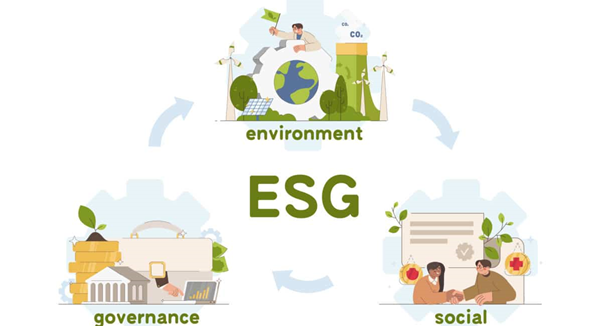
Environmental, Social, and Governance (ESG) principles are at the forefront of global business strategies, emphasizing sustainability, ethical practices, and social responsibility. While ESG provides a framework for holistic corporate governance, Corporate Social Responsibility (CSR) serves as a practical tool to achieve ESG goals. Together, they form a powerful synergy that drives sustainable development, enhances brand reputation, and ensures long-term success.

The Interplay Between ESG and CSR
ESG focuses on evaluating a company’s impact on environmental sustainability, social equity, and governance integrity. It requires businesses to integrate these dimensions into their decision-making processes, aligning with stakeholder expectations. CSR, on the other hand, involves voluntary initiatives undertaken by companies to address societal and environmental issues.
By aligning CSR activities with ESG objectives, organizations can:
- Address critical social and environmental challenges.
- Demonstrate commitment to responsible business practices.
- Build stronger relationships with stakeholders.
“CSR is the bridge that connects a company’s commitment to sustainability with tangible societal impact.”
Leveraging CSR to Achieve ESG Goals
- Environmental Stewardship through CSR: CSR initiatives like tree plantation drives, renewable energy adoption, and waste reduction programs contribute directly to the environmental pillar of ESG. By reducing their carbon footprint and promoting resource conservation, businesses can demonstrate a tangible commitment to sustainability.
- Social Impact through Community Engagement: CSR programs that focus on education, healthcare, skill development, and community empowerment align with the social dimension of ESG. These initiatives not only enhance societal well-being but also strengthen employee morale and customer loyalty.
- Governance Excellence through Ethical Practices: Transparent reporting, anti-corruption measures, and compliance with regulations—all integral to CSR—reinforce the governance aspect of ESG. By fostering ethical practices, businesses build trust and credibility among stakeholders.
- Provide standardized ESG disclosure formats.
- Encourage comparability and accountability among companies.
- Align Indian businesses with global sustainability benchmarks.
Case Studies: CSR Driving ESG Success
- Tata Group The Tata Group’s CSR initiatives exemplify how businesses can address societal issues while advancing ESG goals. Through programs like the Tata Trusts and Tata Sustainability Group, the company has significantly impacted education by providing scholarships, establishing institutions, and improving school infrastructure. In healthcare, initiatives include building hospitals, conducting medical outreach programs, and supporting advanced medical research. The group’s rural development efforts focus on water conservation, sustainable agriculture, and community welfare, empowering rural populations. These initiatives highlight Tata’s commitment to sustainability, community welfare, and governance excellence, enhancing their global reputation.
- ITC Limited ITC’s ‘Mission Sunehra Kal’ exemplifies the integration of CSR with ESG objectives, addressing both environmental conservation and social upliftment. Through extensive water conservation initiatives, ITC has rejuvenated watersheds across rural India, enhancing agricultural productivity and ensuring water security for communities. Their waste management programs promote a circular economy by encouraging recycling and reducing plastic waste. Additionally, ITC’s rural development efforts, such as skill development and micro-entrepreneurship programs, empower local populations by creating sustainable livelihoods. These holistic initiatives underline ITC’s commitment to ESG principles and reinforce its reputation as a socially responsible enterprise.
Benefits of Integrating CSR with ESG
- Enhanced Investor Confidence: ESG-aligned CSR activities attract socially conscious investors, improving access to capital.
- Risk Mitigation: Addressing environmental and social challenges reduces operational and reputational risks.
- Competitive Advantage: Companies demonstrating genuine ESG commitment differentiate themselves in the marketplace.
Challenges in Aligning CSR with ESG
Despite the benefits, businesses often face challenges in:
- Measuring the impact of CSR initiatives on ESG outcomes.
- Ensuring consistency across diverse operations.
- Overcoming skepticism about ‘greenwashing’ or insincere claims.
The Way Forward
To maximize the potential of CSR in driving ESG, companies should:
- Adopt a Strategic Approach: Integrate CSR initiatives into core business strategies to ensure alignment with ESG objectives.
- Leverage Technology: Use data analytics to measure and communicate the impact of CSR programs on ESG metrics.
- Engage Stakeholders: Collaborate with communities, investors, and employees to identify and address material issues.
Conclusion
The integration of CSR into ESG frameworks represents a transformative approach to corporate responsibility. By leveraging CSR as a tool to drive ESG objectives, businesses can create lasting value for stakeholders, contribute to sustainable development, and achieve long-term success. As the focus on sustainability intensifies, this alignment will be crucial for companies aspiring to lead in an increasingly conscious world.
“Integrating CSR into ESG frameworks is not just good business—it’s essential for building a sustainable future.”
Disclaimer:
The content of this article is intended for informational purposes only and should not be construed as professional advice. While we strive to ensure the accuracy and reliability of the information provided, we make no warranties or representations regarding its completeness or applicability. Readers are encouraged to seek professional guidance tailored to their specific circumstances. The views and opinions expressed in the article are those of the author and do not necessarily reflect the official policy or position of our organization.




